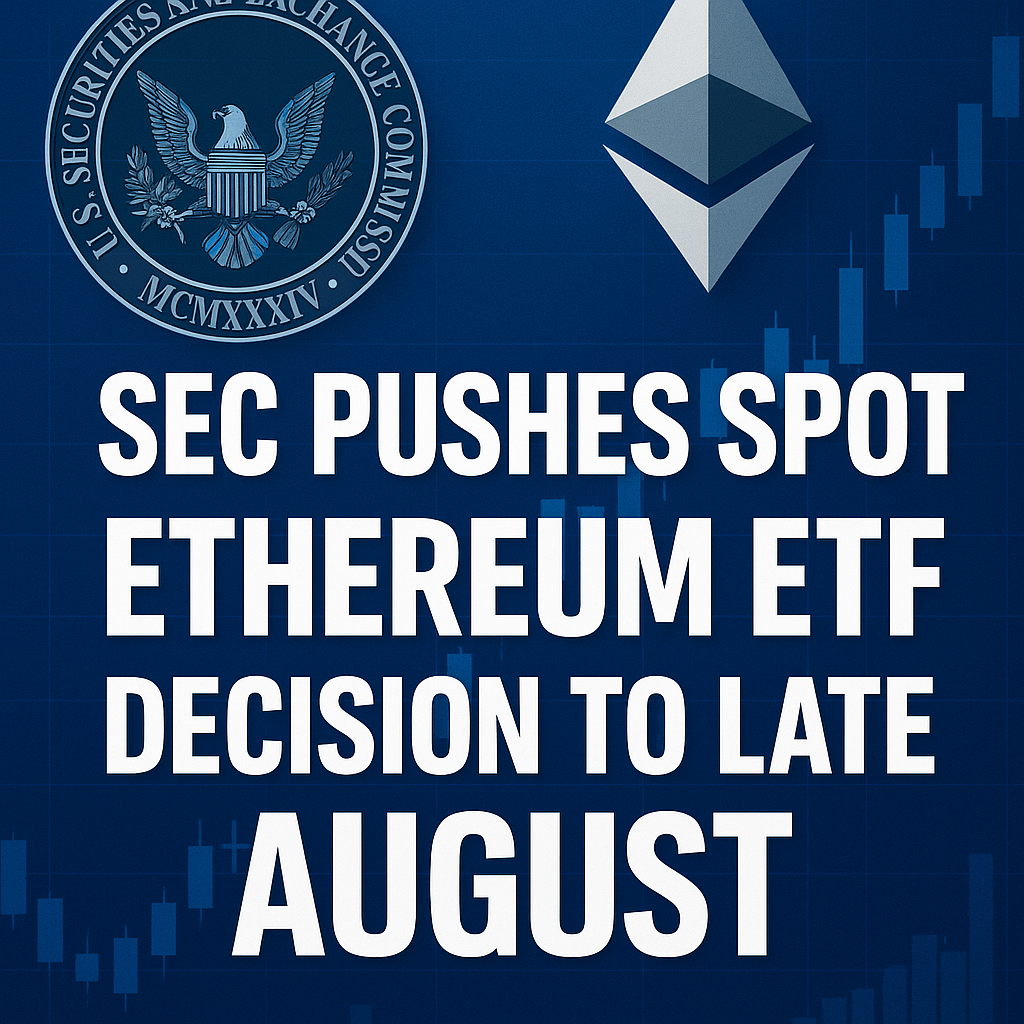1. SEC Pushes Spot Ethereum ETF Decision to Late August
The U.S. Securities and Exchange Commission this week extended its review period for multiple spot Ether (ETH) exchange-traded fund (ETF) applications, including those from BlackRock, Fidelity, and Grayscale. The SEC’s delay notice pushes the decision deadline to late August, marking the third extension for ETH-based funds. Firms have argued that once spot Bitcoin ETFs won approval earlier this year, the same logic should apply to Ether products. SEC Chair Gary Gensler, however, has signaled ongoing concerns about market surveillance measures, custodial arrangements, and whether the underlying spot markets are resistant to manipulation. Industry observers warn that a prolonged delay could hamper institutional interest in Ethereum while potentially bolstering demand for regulated futures-based ETH products.
(via CoinDesk)
2. Spot Bitcoin ETFs Attract Over $10 Billion in First Week of Trading
Data compiled by Farside Investors shows that the newly approved U.S. spot Bitcoin ETFs amassed more than $10 billion in net inflows during their inaugural week on the market. BlackRock’s iShares Bitcoin Trust led with $3.5 billion, followed closely by Fidelity’s Wise Origin Bitcoin Fund. Proponents argue that this level of capital adoption underscores strong institutional demand and could drive further price appreciation for BTC. Bitcoin’s price briefly topped $73,000 on the news, its highest in over a year. Skeptics caution that much of the inflow may be front-loaded from exchanges converting OTC holdings, and that inflows could taper if volatility picks up. Still, this rapid deployment of capital represents a watershed moment for crypto’s integration into mainstream investment portfolios.
(via The Block)
3. EU’s Landmark MiCA Crypto Rulebook Goes Live
As of today, the European Union’s Markets in Crypto-Assets (MiCA) regulation is officially in force across all 27 member states. MiCA establishes comprehensive rules for issuers of crypto-assets, stablecoins, and service providers, including registration requirements, capital buffers, and transparency obligations. Major provisions include a ban on algorithmic stablecoins, strict “white-label” wallet security standards, and consumer protection measures such as mandated disclosures and complaint-handling processes. Crypto businesses operating in the EU now have an 18-month grace period to secure full licensing under the new regime. Proponents hail MiCA as the first truly global crypto regulatory framework, while critics warn that its compliance costs could push smaller firms out of the market.
(via Decrypt)
4. Singapore’s MAS Orders Binance to Cease Local Crypto Services
The Monetary Authority of Singapore (MAS) has directed Binance to stop serving retail users in the city-state, citing unaddressed shortcomings in the exchange’s anti-money-laundering (AML) and counter-financing-of-terrorism (CFT) controls. In a public notice, MAS stated that despite repeated warnings, Binance failed to implement sufficient safeguards to monitor client transactions and identify suspicious activity. While the exchange has voluntarily suspended new retail sign-ups in Singapore, MAS’s directive now formally bars Binance from providing services to existing retail clients. High-net-worth and institutional users may still access the platform under a separate licensing track. Binance has acknowledged the notice and said it is engaging MAS to address the issues.
(via Reuters)
5. Aave Launches V3 on Base, Fueling DeFi Growth
Leading decentralized lending protocol Aave has deployed its version-3 smart contracts on Base, the Ethereum-layer-2 network developed by Coinbase. The migration brings Aave’s credit-delegation, stable- and variable-rate borrowing, and innovative risk-management features—such as isolation mode and optimized collateral efficiency—to Base’s fast, low-fee environment. Early data shows over $150 million in total value locked (TVL) within hours of the launch, with USDC and DAI representing the bulk of deposits. Base’s complement of on-chain and off-chain Oracle feeds, together with Coinbase’s fiat-on-ramp, is expected to drive further adoption among retail and institutional users seeking yield opportunities. Aave Governance will vote this week on enabling the “Portal” bridging feature, which would allow seamless asset transfers between Base and other layer-2 networks.
(via CoinTelegraph)

